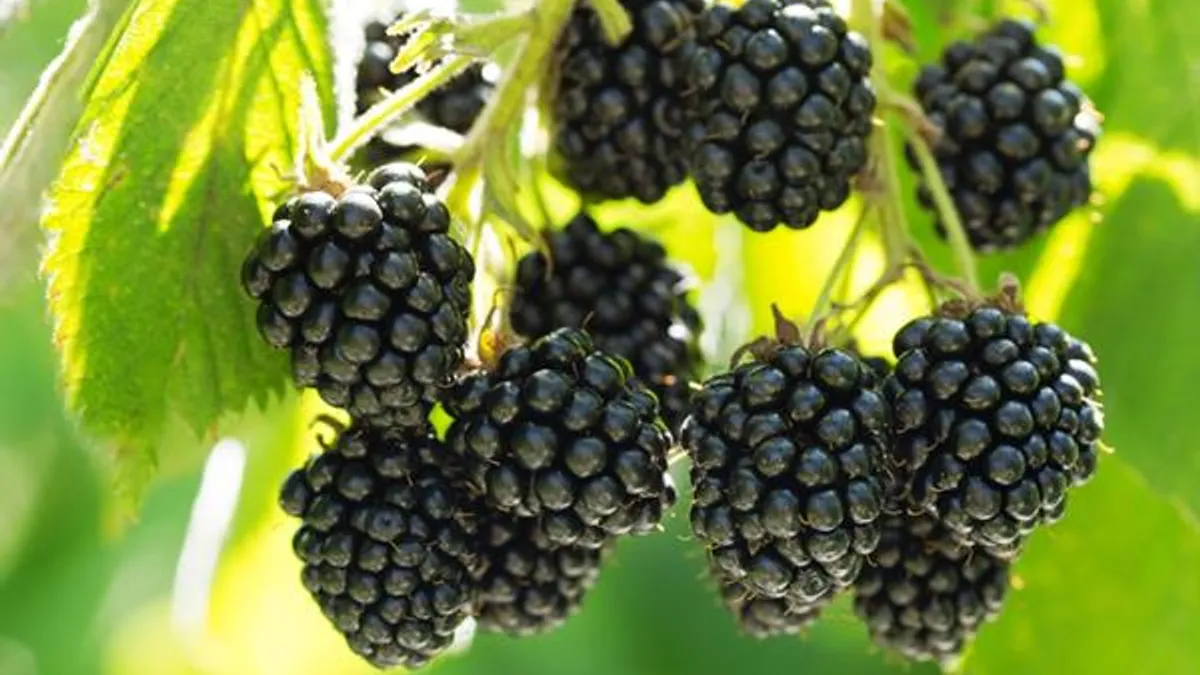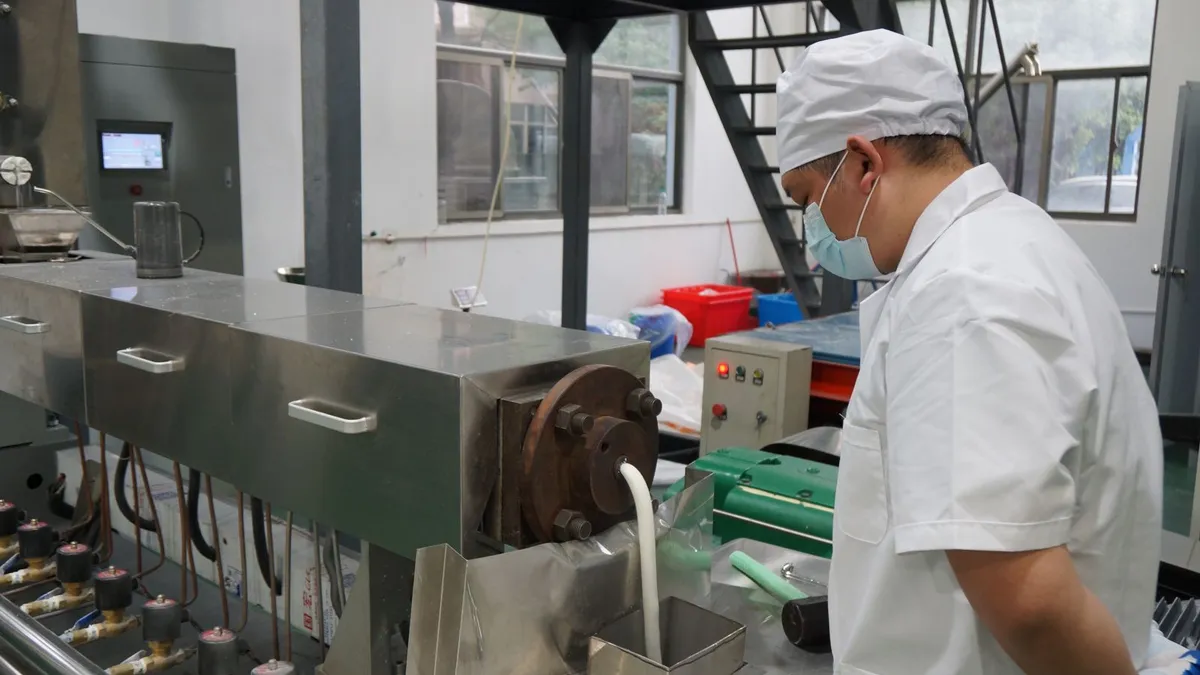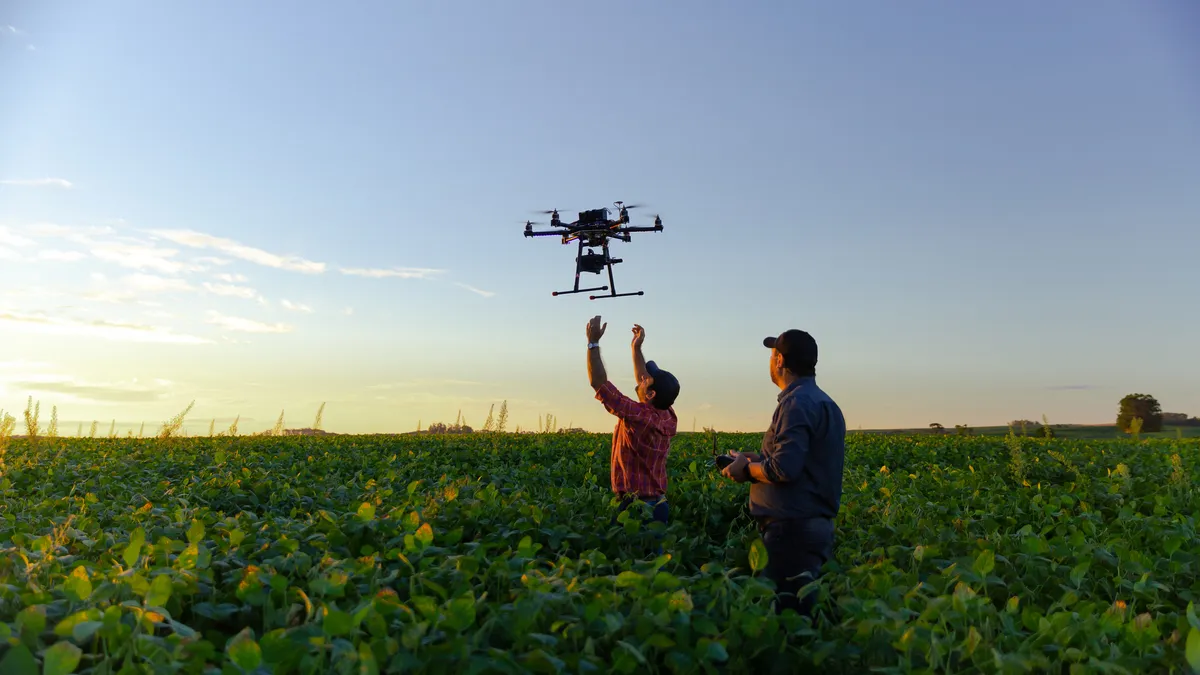Editor’s note: Agtech Seedlings is a weekly roundup of the latest in agriculture technology news, digging into venture funding, product announcements and other innovation milestones. Have news to share? Email us here.
Pairwise develops a seedless blackberry
Agtech startup Pairwise, which uses gene-editing to drive innovation in fruits and vegetables, said it's created the world's first seedless blackberry.
Scientists deployed a suite of CRISPR tools to eliminate the hard pits in berry fruit, Pairwise said, creating soft, small seeds similar to those found in grapes and watermelon that are commonly labeled as seedless.
"We expect that this trait will not only transform the blackberry market, but it also lays the groundwork for accelerated progress in removing seeds and pits in many other fruits such as cherries," Ryan Bartlett, Pairwise chief technology officer, said in a statement.
Pairwise has also successfully edited caneberry plants such as blackberries and raspberries to eliminate thorns and create a more compact plant that can be planted at a higher density per acre.
“We’re excited to advance these berries into the next phase of product development, including outdoor field trials, as we work toward scaling up and making them available to the public in a few years," Pairwise Co-Founder and Chief Business Officer Haven Baker said in a statement.
Syngenta shares gene-editing rights with researchers to boost innovation
As part of a collaborative effort to accelerate sustainability and innovation in agriculture,
crop sciences giant Syngenta is sharing the intellectual property rights to certain genome editing and breeding technologies with academic researchers.
The rights are related to breeding tools and optimized CRISPR-Cas12a, a plant genome editing tool that has grown in popularity in recent years. The tech makes it possible to improve a plant's traits without introducing DNA from another species, Syngenta said, allowing for more efficient breeding.
The announcement is part of the global innovation platform Shoots by Syngenta, which was launched in 2023 to partner the company's scientists with academics and research institutes on solutions to mitigate climate change, enhance biodiversity and boost farm efficiency.
“The increased use of CRISPR in agriculture can transform the way we approach plant breeding, accelerating the discovery and deployment of innovations that provide growers more productive and resilient crops," Gusui Wu, Syngenta head of global seeds research at Syngenta, said in a statement. "We are inviting universities and academic institutions from around the world to help us drive innovation to improve the sustainability of agriculture.”
A crispier, healthier potato chip is near
A less sugary potato developed by a Michigan State University scientist is closer to reaching the market after clearing a key federal regulatory hurdle.
The Kal91.3 potato, which is bred to be stored at cooler temperatures and produce less fructose and glucose, has been granted an exemption from biotech regulations after the Agriculture Department's Animal and Plant Health Inspection Service determined the modifications could be produced through traditional breeding techniques.
The potato, developed by MSU potato breeder Dave Douches, can be used to develop crispier and healthier potato chips, according to Kelly Turner, executive director of the Michigan Potato Industry Commission.
“Not only does the Kal91.3 potato have a high nutrient content, but it also could be grown by using less fertilizers and pesticides, thus reducing the environmental risk and footprint of the potato-growing process,” Turner said in a statement.
Bezos Earth Fund launches research hub for meat alternatives
Amazon founder Jeff Bezos' philanthropic fund awarded North Carolina State University $30 million over five years to launch a biotech center dedicated to plant-based and other meat alternatives.
The facility, called the Bezos Center for Sustainable Protein, will work to commercialize new technologies and gauge consumer preferences, according to a release. The grant funding aims to support research around plant-based products, precision fermentation and cultivated meat.
The donation is part of a $100 million commitment from the Bezos Earth Fund to create a network of research and development centers focused on advancing sustainable meat alternatives.
"Sustainable protein has tremendous potential but more research is needed to reduce the price and boost the flavor and texture to ensure nutritious, affordable products are available," Andrew Steer, president and CEO of the Earth Fund, said in a statement.



















